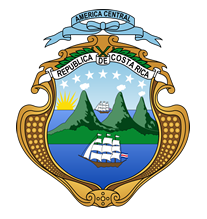Costa Rica: Government
Key Figures
- Chief of State:
- President Rodrigo Chaves Robles
- Head of Government:
- President Rodrigo Chaves Robles
Overview
- Government Name:
- Republic of Costa Rica
- Constitution:
- Adopted: 1949; Provides for the separation of powers between the legislative, executive, and judicial branches. Also, establishes the protection of private property and the protection of intellectual property rights.
- Government Type:
- Democratic Republic

Index of Economic Freedom
Country Risk Rating
Government Branches
| Main Powers | Election Process | Election Cycle 1 | |
|---|---|---|---|
| Executive | The president has limited powers. It cannot veto the legislative budget but can appoint anyone to their cabinet without approval from Congress. The vice-presidents take over reign in the event of the president being unable to do so. |
The president is elected by the qualified majority. The vice-presidents are elected on the same ticket as president. |
4 years |
| Judicial | The supreme court exercises judicial power. The constitutional chamber reviews the constitutionality of legislation, executive decrees, and all habeas corpus warrants. |
The supreme court is nominated by the legislative assembly. |
8 years |
| Legislative | The legislative assembly's power is vested in the assembly. |
The legislative assembly has 57 members who are elected through a closed-list proportional representation system. |
4 years |
Regional Trade Blocs
No Regional Trade BlocsInternational Organization Participation [2]
Environmental Agreements [3]
Tax Information [2]
- Tax Authority:
- Ministry of Finance
- Tax Name:
- VAT
Sources:
- ElectionGuide http://www.electionguide.org/
- EY, http://www.ey.com
- CIA World Factbook, https://www.cia.gov/the-world-factbook/
- U.S. Bilateral Relations Fact Sheets http://www.state.gov/r/pa/ei/bgn/


